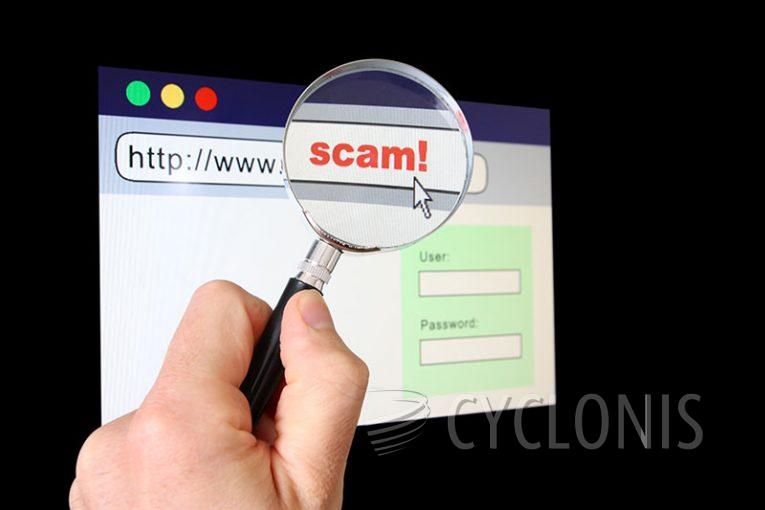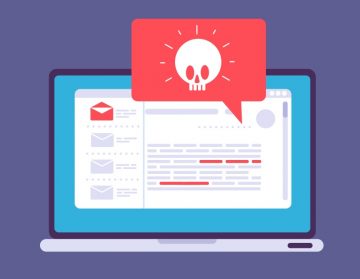'Suspicious Malwares Detected' Email Scam Uses Poor English

Upon closely examining the contents of the "Suspicious Malwares Detected" email, our analysis confirms its status as spam. This deceitful message falsely alleges that the recipient's email account has been infected and their device is in imminent danger. The primary intent of this spam email is to employ deception in order to coax recipients into divulging confidential and sensitive information.
The subject line of this spam email boldly asserts that the recipient's email account harbors 32 viruses. Subsequently, the email body makes claims of the discovery of malicious programs. However, this narrative takes a contradictory turn as it then suggests that the recipient's device is merely at risk of potential infection. In an attempt to induce fear, the email forewarns that failure to take appropriate action might result in file corruption and the compromise of vulnerable data.
It's of utmost importance to emphasize that all the allegations and declarations contained within this email are entirely false, and this correspondence bears no affiliation with any reputable service providers.
Upon conducting our research, we observed that the "Security Check" button embedded within this email directed recipients to an inactive website. Nevertheless, it's worth noting that this situation could be rectified in subsequent iterations of this campaign, wherein the emails might link to functional web pages. Based on our expertise, we conclude that the nonfunctional website was likely intended to function as a phishing platform.
Typically, spam campaigns of this nature endeavor to promote counterfeit email account sign-in pages, with some even mimicking the appearances of authentic webpages utilized by recipients' email service providers. Credentials entered into these phishing sites, including passwords, are surreptitiously captured and transmitted to malicious actors.
The repercussions of falling victim to scams like the "Suspicious Malwares Detected" email can extend beyond mere account compromise. Given that emails are commonly linked to other online accounts, cybercriminals could potentially access these as well.
To elaborate on the potential ramifications, scammers can assume the identities of social media account owners, emails, and messaging platforms, subsequently soliciting loans, donations, promoting scams, and proliferating malware by distributing malicious files or links through these accounts. This multifaceted approach underscores the breadth of potential harm that can result from falling prey to such deceptive schemes.
How Can You Recognize a Scam Email?
Recognizing a scam email is crucial to protecting yourself from phishing attempts, fraud, and other online threats. Scammers often use various tactics to trick recipients into divulging personal information, clicking on malicious links, or downloading harmful attachments. Here are some common signs to help you identify a scam email:
- Sender's Email Address: Check the sender's email address carefully. Scammers often use email addresses that are slightly altered or appear similar to legitimate ones. Look for misspellings, odd domain names, or unfamiliar email addresses.
- Unsolicited Emails: Be cautious of emails that you didn't expect or haven't signed up for. Scammers often send unsolicited emails to cast a wider net.
- Urgent or Threatening Language: Scam emails may use urgent or threatening language to pressure you into taking immediate action, such as "Your account will be suspended" or "Immediate action required."
- Spelling and Grammar Errors: Poor spelling, grammar, and formatting are red flags. Legitimate organizations usually maintain a certain level of professionalism in their communications.
- Generic Greetings: Be wary of emails that start with generic greetings like "Dear Customer" instead of addressing you by name. Legitimate organizations often use your name in their communications.
- Too Good to Be True: Offers that seem too good to be true, such as winning a lottery you didn't enter or receiving an unexpected large sum of money, are often indicators of scams.
- Requests for Personal Information: Legitimate organizations rarely ask for sensitive information like passwords, Social Security numbers, or credit card details via email. Be cautious if an email requests such information.
- Suspicious Links: Hover over links in the email (without clicking) to see the actual URL. Scammers may disguise malicious links with legitimate-looking text.
- Attachments: Don't open attachments from unknown or unsolicited emails, as they could contain malware or viruses.








